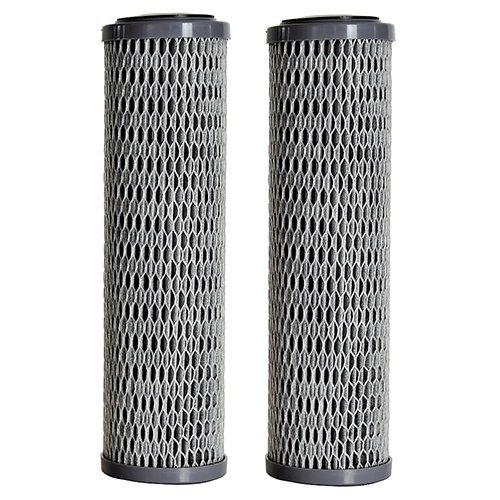Carbon Water Filters Guide for Clean, Safe Water
In the spectrum of technologies designed to purify the water we consume daily, one continually stands out – the carbon water filter. With an estimated 68% of households worldwide leveraging this technology, understanding the carbon water filter, its function, and its benefits can be game-changing.
The carbon water filter, or activated carbon filter, plays a critical part in the water purification process, primarily removing organic contaminants, chlorine, and other hazardous substances. Over the years, it has proven to be one of the most efficient, cost-effective, and eco-friendly solutions available on the market.

At a microscopic level, carbon water filters work through a process known as adsorption. They employ activated carbon's vast surface area—it's composed of tiny, low-volume pores—to trap unwanted particles in the water. This process ensures that clean, palatable water is readily available at our taps.
But why exactly do we need a carbon water filter? Simply put, it's about ensuring the quality and safety of the water we drink. Whilst tap water is generally safe, it can contain potential contaminants detrimental to health. Carbon water filters effectively remove these harmful substances, thus enhancing water safety. They also eliminate odors and improve taste by removing chlorine – a common disinfectant leaving a strong taste in tap waters.
Additionally, contaminants inadvertently let into the water supply during natural disasters can be intercepted using carbon water filters, ensuring safe consumption. If you have a private well, a carbon water filter becomes invaluable, protecting you from potential bacterial contamination.
Another key aspect to consider is: when should one be replaced? Typically, a carbon water filter should be changed every 6-12 months. However, it largely depends on usage and the condition of the incoming water. It's always advisable to follow the manufacturer's instructions and replace it promptly to ensure efficiency.
So, how does one go about choosing a quality carbon water filter? Firstly, consider a reputed brand with quality certifications. Preferably, the product should be NSF/ANSI-standard certified, ensuring it meets specific safety and quality requirements. Also, consider the surface area – larger surface area filters generally have greater adsorption capabilities.
Secondly, consider the filter’s micron size. The lower the micron size, the more pollutants it’s capable of intercepting, with 0.5 microns being ideal. Lastly, check if the carbon water filter can effectively reduce chlorine, lead, mercury, and other harmful chemicals.
From ensuring your tap water is clean and safe to protecting you against potential waterborne diseases, a carbon water filter is an investment indisputably worthy of consideration. Also, the sense of security that comes with knowing you're drinking purified, clean water is immeasurable.
Carbon water filters are an important addition to any home. Their ability to remove harmful substances, their affordability, and easy maintenance makes them a sensible choice for any household looking to improve their drinking water quality. As we understand more about water quality and its impacts on health, having a carbon water filter becomes an integral part of responsible homeownership.


